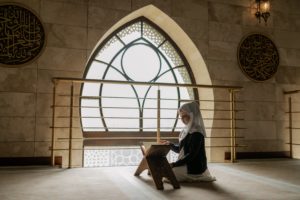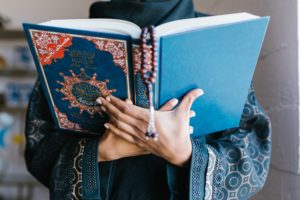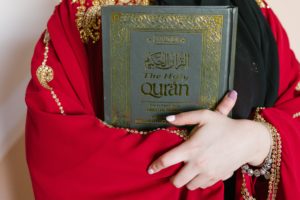
Cultural Sharing: Eid al-Fitr, an Islamic festival
The month-long ritual of Ramadan began on March 23, it is an essential period of spiritual discipline for Muslims, during which they fast from dawn until sunset every day for 30 days. Fasting during Ramadan is one of the Five Pillars of Islam and is meant to help Muslims develop self-discipline, empathy, and a closer connection with Allah. In addition to fasting, Muslims are also encouraged to increase their acts of worship and charitable giving during Ramadan.
As the month of Ramadan comes to an end, Muslims eagerly anticipate the festival of Eid al-Fitr, which is celebrated on the first day of Shawwal, the tenth month of the Islamic calendar. On this day, Muslims gather with family and friends to offer prayers, exchange gifts, and enjoy festive meals.
Eid al-Fitr is a significant Muslim holiday that marks the end of the holy month of Ramadan, which is observed by Muslims worldwide. It is a time of joy, celebration, and reflection, as Muslims celebrate the completion of their month-long spiritual journey and express gratitude for the blessings of Allah.

The day begins early in the morning, with Muslims waking up before dawn to perform the Eid prayer. The prayer is typically held in mosques or large outdoor spaces, and Muslims gather in large numbers to participate in the prayer. The Eid prayer is a special form of prayer that consists of two units, or rakats, and is led by an imam.
After the prayer, Muslims exchange greetings of “Eid Mubarak,” which means “blessed Eid,” and give gifts to one another, especially to children. It is a time of joy and celebration, and Muslims wear their best clothes and decorate their homes with lights and other decorations.
The festival of Eid al-Fitr is also a time for charitable giving, and many Muslims choose to give donations to those in need or distribute food to the poor. This practice is known as Zakat al-Fitr, and it is a way for Muslims to express gratitude for their blessings and share their wealth with others.
In addition to the festive celebrations, Eid al-Fitr is also a time for reflection and renewal. Muslims use this time to reflect on the lessons learned during Ramadan and to renew their commitment to their faith. It is a time for forgiveness and reconciliation, and Muslims are encouraged to seek forgiveness from one another and to strengthen their bonds of brotherhood and sisterhood.

Overall, Eid al-Fitr is a time of joy, celebration, and reflection for Muslims all around the world. It is a time to express gratitude for the blessings of Allah and to renew one’s commitment to faith and charitable giving. Through the celebrations and the act of worship, Muslims come together to strengthen their bonds of brotherhood and sisterhood and to reaffirm their connection to their faith and their community.
